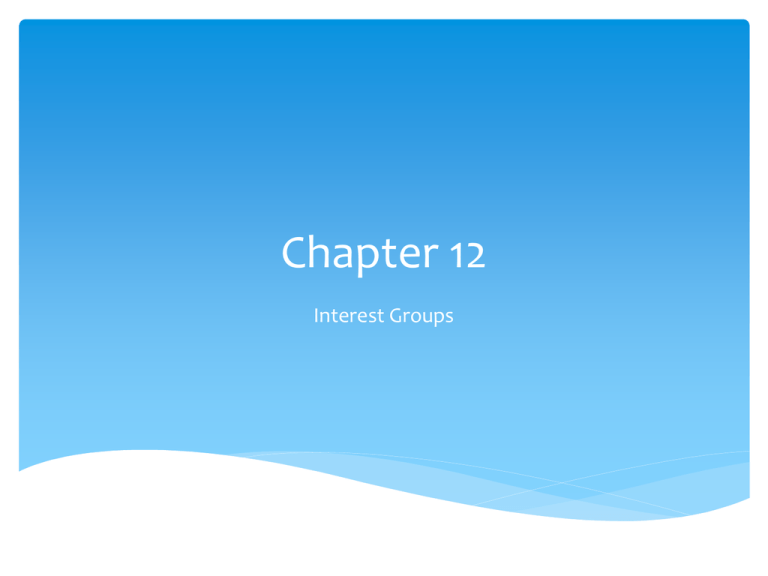Chapter 12 Interest Groups
advertisement

Chapter 12 Interest Groups Interest Groups Different from political party Political parties tend to address a broader range of issues (at least in United States) Want to influence what those in power do Group of like-minded people who organize to influence policy Interest Groups May exist just to lobby, or influence, policy May exist for other reasons as well Organization level varies greatly from group to group Level of organization can affect effectiveness Possible Issues Money Leadership not in touch with membership Organization Leadership may not be democratically selected Selective Incentives Benefits that can be given to some people and denied to others Selective benefits can be offered to people in an organization in addition to the central purposes of the group Example: A trade union may offer members low-cost vacation packages Reason some people join interest groups Types of Interest Groups 1. Sectoral: Represent a sector of the economy—corporation, union, etc Usually have more money Usually more effective Tend to dominate interest group systems Types of Interest Groups 2. Institutional Groups: Set up primarily for purposes other than political activities Become politically active only when need to defend their issues Example: Red Cross lobbying for funds for a national emergency Types of Interest Groups 3. Promotional Groups: Organize around a point-of-view or idea Examples: National Rifle Assn. Numbers of this type of group has grown in recent years This types especially active and important in US Tactics to Influence 1. 2. 3. 4. 5. 6. 7. Control of information and expertise Electoral activity Use of Economic activity Campaign contributions Public Information Campaigns Violence and disruption Litigation/Lawsuits Pluralism An idealized system where all interests (and interest groups) can organize and compete freely and no one group can dominate Government is open to influence from interest groups Varies greatly from state to state Neocorporatism A system of government and interest groups where all interests are organized However, instead of responding to groups efforts to influence, government actively involves the groups in the process of governing. This active government role is different than with pluralism.

